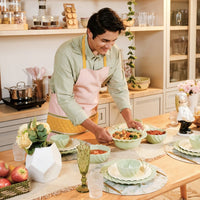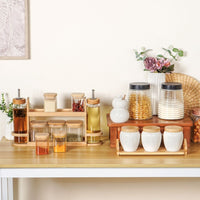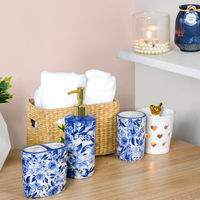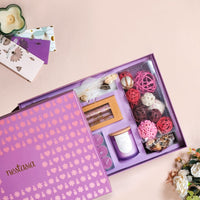Cooking for the whole family can often feel like a daunting task, especially when juggling work, school runs and everything else in between. With everyone’s different tastes and schedules, it is no surprise that many parents reach for the takeaway menu more often than they would like. But what if there was a way to save time, money and effort while still keeping meals nutritious and satisfying? That is where meal prep comes in. It is not just a trendy phrase on social media but a practical solution that transforms mealtimes into something to look forward to.
When you plan and prepare meals in advance, you create a calm, reliable system that helps you breeze through the week. This routine allows you to spend less time worrying about what to cook and more time enjoying meals with your family. Meal prepping builds a sense of structure, making it easier to stay on top of nutrition, reduce food waste and handle unexpected changes in your schedule. It is a simple yet powerful way to bring more balance and joy into your daily life.
In this blog, we will explore how meal prep can improve your family’s nutrition, reduce stress and allow you to reclaim some well-deserved time for yourself.
Why Bother with Meal Prep?
Imagine arriving home after a long day to a kitchen that is already filled with delicious, ready-to-eat meals. That is the magic of meal prep. By cooking meals in advance and storing them properly, you can avoid last-minute panic and still ensure your family gets the nutrients they need.
Meal prepping also helps reduce waste. When you portion food into storage glass jars and label them, you can see exactly what you have and what needs using up. This small step can make a big difference to both your grocery bill and the planet.
Saving money is another bonus. When you plan meals in advance, you shop with intention, buy in bulk and avoid unnecessary extras. It also helps you to use up leftovers creatively rather than letting them gather mould at the back of the fridge.
How to Get Started
A great place to start is by asking your family what meals they would love to eat during the week. Keep a glass jar [*wink*] on the kitchen counter where everyone can drop in their suggestions. When planning your weekly menu, dip into this jar to pick out ideas. This way, everyone feels involved and excited about mealtimes.
Variety is key to keeping meals interesting and balanced. Plan to include a mixture of proteins, vegetables, whole grains and healthy fats. Think of dishes like chickpea curry cooked in a ceramic cooking pot, served with brown rice prepared in a stainless steel cooking pot. Or perhaps a simple soup stored in soup bowls with spoons that can be grabbed quickly during the lunch rush.
Another useful trick is to plan theme nights. One night might be a comforting pasta dish, another could feature a hearty soup. These themes help structure your week and make shopping easier.
Batch Cooking: The Foundation of Meal Prep
Batch cooking is one of the best time-saving strategies in the kitchen. Choose a day, maybe Sunday, and spend a few hours preparing several meals that can be stored and enjoyed throughout the week.
A cooking pot is ideal for slow-cooked dishes like vegetable stews, chickpea curries and even homemade broths. Ceramic pots distribute heat evenly, which is perfect for long, gentle cooking. Once your meal is done, let it cool and transfer it into storage glass jars. Label each jar so you can grab the right dish when you need it.
Protein is a must in every meal. Boil eggs or bake chicken breasts in stainless steel cooking pots and pans, then store them in glass jars for quick additions to salads, sandwiches or wraps.

Grains like rice and quinoa also deserve a spot in your prep plan. Cook a big batch in your stainless steel pot and portion it into jars. Having these grains ready makes meal assembly quick and easy, especially on busy nights.
Lunchbox-Friendly Ideas
Packing lunches for the family can often feel like a chore, but with a little prep, it becomes a breeze. Make a big pot of soup and store it in ceramic soup bowls. These are perfect for reheating at school or work, and they add a comforting touch to the lunch break.
Fruit is another lunchtime essential. Keep a few window glass jars filled with washed and sliced fruit in the fridge so that even the busiest morning can include a healthy snack.
Snack jars are a lifesaver for hungry moments. Fill small storage glass jars with homemade trail mix, nuts or roasted chickpeas. These are healthier than pre-packaged options and can be easily customised to suit everyone’s tastes.
Nutrition for All Ages
Every family member has different nutritional needs, and meal prep can help you cater to them all.
For children, focus on variety and fun. Keep meals colourful and interesting, like rainbow veggie wraps or fruit salads. Store them in storage glass jars so they stay fresh and easy to grab.
Teenagers often need quick, protein-rich meals. Sliced chicken or boiled eggs, stored in borosilicate glass jars, make great additions to wraps and salads.
Adults benefit from balanced meals rich in protein, whole grains and vegetables. Batch cook hearty stews and curries in ceramic cooking pots to keep everyone satisfied.
Older family members may need softer foods that are easy to chew. Prepare lentil soups or vegetable stews in stainless steel cooking pots and portion them into soup bowls with spoons for convenience.
Boosting Immunity through Diet
Meal prepping is also a chance to support your family’s immune health. Citrus fruits, bell peppers and strawberries are packed with vitamin C. Keep these in easy-to-see glass jars so everyone remembers to eat them.
Seeds and nuts contain zinc, an essential mineral for immune function. Toast them lightly and store in for topping on salads and soups.
Healthy fats from olive oil are equally important. Store your best olive oil in a cruet and drizzle it over salads and grilled vegetables. A cruet makes it easy to pour and adds a touch of elegance to your table.
Spices like ginger, turmeric and garlic can be pre-prepped and stored in small jars to add flavour and immune-boosting benefits to your meals.
Staying Organised
A tidy kitchen makes meal prep easier. Keep your dry goods in see-through glass jars so you can see at a glance what is running low. Storage glass jars are perfect for prepped meals, leftovers and snacks.
When storing meals, label each jar with the date it was made on. This simple step prevents accidental spoilage and keeps your fridge neat.

Stackable containers and clear labels help you organise your fridge and freezer, saving time when you need to find something quickly.
Glass jars are safe for use in the fridge, oven and microwave, which means fewer dishes to wash. They also allow you to see what is inside, so you are more likely to use up your meals before they go bad.
Drinks to Keep Everyone Hydrated
Hydration is often overlooked, but it is just as important as solid meals. Keep water fresh and accessible with a borosilicate glass water bottle. Add slices of lemon, mint or berries to make water more appealing, especially for children who might otherwise forget to drink.
For something a bit special, infuser jugs are a lovely way to serve infused water or herbal teas at the dinner table. Their design makes even plain water look inviting.
Making Meal Prep Enjoyable
Meal prep does not have to be a solitary chore. Involve the whole family to make it a fun, shared experience. Let children help wash vegetables or stir sauces. Older kids can handle simple chopping or even portioning meals into jars. Grandparents might enjoy sharing traditional recipes that bring everyone together.
Music, podcasts or an audiobook can also make the time fly by, turning a once tedious task into a chance to unwind and connect with your thoughts.
Keeping It Budget-Friendly
Meal prep can save money. When you plan your meals, you shop with purpose and avoid unnecessary impulse buys. Buy in bulk when possible and store dry goods like rice, lentils and pasta in window glass jars. These jars keep everything visible and fresh.
Using seasonal produce not only tastes better but costs less. Freeze extras in storage glass jars so you can enjoy your favourites even when they are out of season.
Cooking pulses like chickpeas or kidney beans from scratch in your stainless steel cooking pots is cheaper than buying them canned and lets you control the salt and spices.
A Weekly Meal Prep Routine
|
DAY |
PLAN OF ACTION |
|
Monday |
Cook grains and protein, portion into storage glass jars |
|
Tuesday |
Chop salad vegetables and store in containers |
|
Wednesday |
Prepare infused oil in a cruet and water bottles |
|
Thursday |
Assemble snacks and lunch boxes |
|
Friday |
Use leftover portions to create meals |
|
Saturday |
Let family choose meals from the prep stash |
|
Sunday |
Plan menu, buy groceries, cook vegetable curry in a ceramic pot and lentil soup |
Troubleshooting and Tips
Sometimes even the best meal plans hit a snag. If your fridge is overflowing, try stackable containers to maximise space. When meals run out too soon, consider doubling your recipes or freezing extra portions. If your family grows tired of the same meals, switch up the spices and herbs or try international cuisines for variety. For days when time is tight, a slow cooker or Instant Pot can do the hard work while you get on with other tasks.
Final Thoughts
Meal prepping is not just about saving time; it is about creating a more balanced, stress-free approach to feeding your family. By dedicating a little time each week to plan and prepare, you can ensure that nutritious meals are always at your fingertips. This simple habit supports busy weekdays, fosters healthy eating, and allows you to spend more time enjoying the moments that truly matter. Whether you are cooking for little ones, busy adults or older family members, a well-prepared meal brings everyone together. Embrace meal prepping as a valuable part of your routine and watch it enrich your family's health, happiness and sense of togetherness.






















